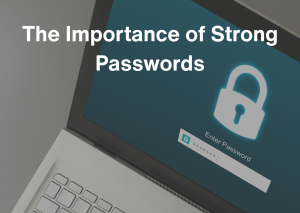Published date:

As World Password Day 2025 has just passed, NICSC wants to use this as an opportunity to remind everyone of the importance of strong passwords. Weak or reused passwords remain one of the most common entry points for attackers, making strong password practices essential for individuals and organisations.
Why do strong passwords matter?
Passwords function as digital gatekeepers, and if compromised, they can give cyber criminals access to sensitive personal or professional information. Some techniques used by cyber attackers include:
- Phishing attacks – tricking users into revealing their passwords through fake emails or websites.
- Data Breaches – using leaked information from one service to access others.
- Brute-Force Attacks – systematically guessing passwords until the correct one is found.
- Password Spraying – trying commonly used passwords across different accounts.
Paying special attention to your email password
Among all accounts, your email account is especially important to protect. If someone gains access to your email, they can potentially reset passwords for other linked services, access sensitive information, and impersonate you online.
Always use a strong and separate password for your email; this being a password that you do not use for any of your other accounts. This means if a cyber criminal steals your password for one of your other accounts, they cannot use it to access your email.
Practical steps to stay secure
Adopting a few simple practices can significantly reduce the risk of unauthorised access:
- Use strong and unique passwords - Create passwords using three random words (e.g, BottleWindowRiver) to make them easier to remember but hard to guess. Avoid common phrases or predictable combinations.
- Turn on Two-Factor Authentication (2FA) - 2FA adds a second layer of protection by requiring something you know (a password) and something you have (like a mobile device or app-generated code) to gain access into your account.
- Use a Password Manager - These tools generate and store passwords for each account, helping avoid password reuse and simplifying secure logins.
- Keep Passwords Updated - Change passwords immediately if there is any suspicion they may have been compromised and regularly review account security.
- Stay Informed - Understanding the risks and recognising the signs of cyber threats helps individuals and teams stay one step ahead of potential attacks.
Good password habits are fundamental to good cyber security. Whether protecting personal email accounts or organisational systems, following these simple steps can prevent most common cyber attacks. Strong passwords and two factor authentication are not just best practice – they are essential.
For more information on passwords check out our Stay Secure - Passwords, Patch and Prepare page.